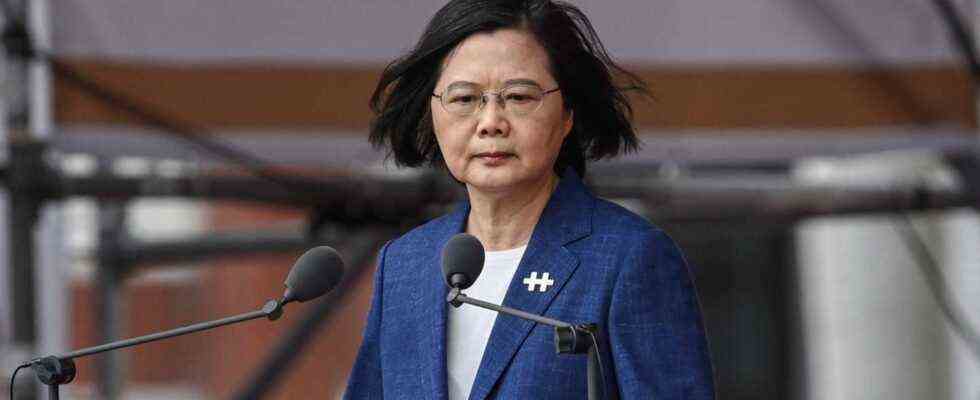Taiwanese President Tsai Ing-wen ” confidence [en] the United States, given the long-standing relationship that binds us ” to defend his island against China, against a backdrop of growing tensions between Washington and Beijing over Taipei’s role on the international scene.
In an interview in English given on Tuesday October 26 to CNN, she also mentioned the “Wide range of cooperation with the United States aimed at increasing [la] defense capacity [du pays] “, including the US military training of Taiwanese forces.
She also admitted that American soldiers were present on Taiwanese territory as trainers, without specifying their number. It is the first time that a Taiwanese leader publicly recognizes such a presence since the departure of the last American garrison in 1979.
The presence of American soldiers was confirmed in early October by an American official quoted anonymously by the Wall Street Journal. The figure then evoked was “Less than 20”, divided between “Soldiers of special forces and conventional forces”. “We firmly oppose any form of official exchanges and military contacts between the United States and Taiwan”, reacted a spokesperson for Chinese diplomacy.
Questions on Taiwan’s place in international forums
Diplomatic tensions have increased recently between the United States and China over the fate of this island of 23 million inhabitants, which has its own government, currency, army, but which Beijing considers one of its provinces on hold. of reunification with the rest of the country.
Before the Taiwanese president’s statement, Mr. Biden recalled that the United States was “Deeply concerned about the coercive and aggressive actions of China (…) in the Taiwan Strait ”. Tensions have increased there with the increase in Chinese air raids near the island. The head of the American diplomacy, Antony Blinken, had also aroused the ire of Beijing by pleading, Tuesday, in favor of a “Meaningful participation” of Taipei in the UN bodies and on the international scene because its “Exclusion undermines the important work of the UN and its agencies”. “Taiwan has no right to participate in the UN”, China immediately retorted, through the spokesperson of the Taiwanese affairs office, Ma Xiaoguang.
The end of the policy of “strategic ambiguity”
The very delicate Taiwanese issue risks further poisoning relations between the United States and China, at their lowest in years. Last week, Biden appeared to want to send a new message of firmness to Beijing. Asked about the possibility of US military intervention to defend Taiwan in the event of an attack from China, the president answered in the affirmative : “Yes, we have a commitment to that. “
His statement appeared to contradict the long-standing US policy of“Strategic ambiguity”. By virtue of this, Washington helps Taiwan build and strengthen its defense, but without explicitly promising to come to its aid in the event of an attack.
Mr. Biden’s remarks had been badly received in Beijing and the American government had subsequently taken care to ensure that its policy towards Taiwan had not changed: the United States had recognized communist China since 1979. , to the detriment of Taiwan, but the American Congress at the same time imposes the supply of arms to the island for its defense.

